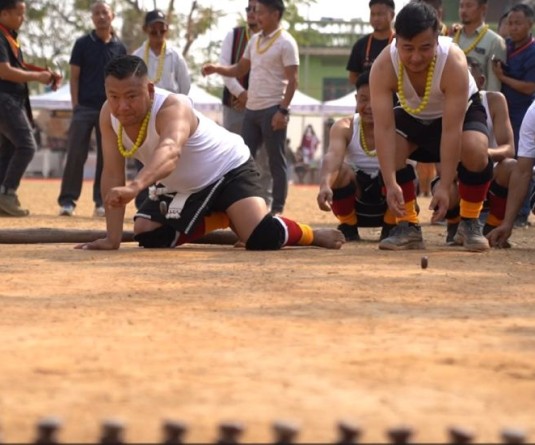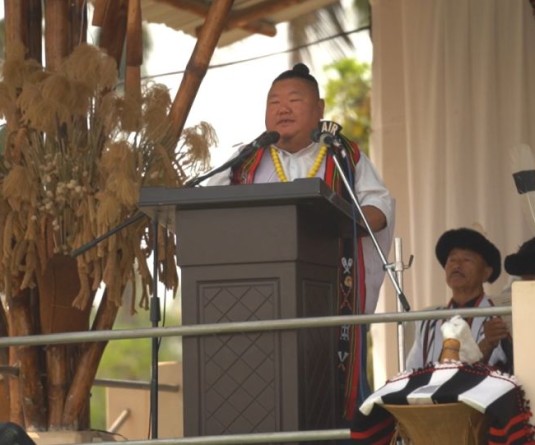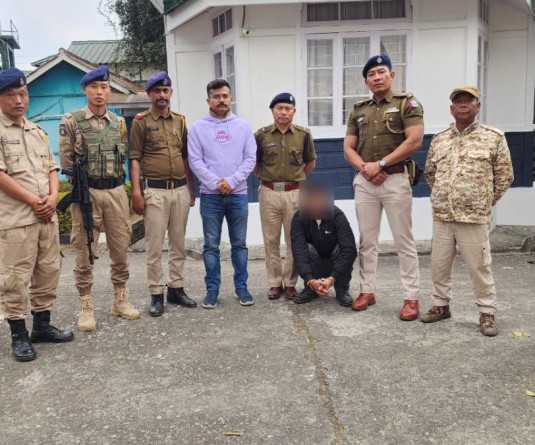
New Delhi, July 9 (MExN): The Delhi sector of the Naga Peoples Movement for Human Rights, (NPMHR) organized its 15th Morung Dialogue through a webinar on ‘Naga Peoples’ Aspiration and Law and Order’ on July 8.
The dialogue was held in the light of the Governor’s letter to the Chief Minister of Nagaland, according to a press release from the NMPHR on Thursday.
The panel comprised of Advocate Timikha Koza, President Tenyimia Peoples’ Organization; Professor Rosemary Dzuvichü, Department of English, Nagaland University, also advisor to Naga Mothers’ Association and Keviletuo Kiewhuo, Former President, Naga Hoho.
Timikha Koza said that the Nagas have always cherished and valued freedom and peace, and that “…The aspiration of the Nagas cannot be suppressed.”
According to him, the Governor's letter to the Chief Minister has created fear amongst the Naga people in the midst of the ongoing COVID-19 pandemic. “The Nagas have suffered enough under military rule in the name of law and order and do not wish to experience another such phase,” he maintained. “The Governor’s quote on “total collapse of law and order” needs to be revisited,” he added, saying that Nagas today are enjoying a “time of peace,” and it is therefore “not right to say that law and order has collapsed.” Nagaland is in fact comparatively more peaceful in relation to its past or to other states, he said.
The Governor who is also the interlocutor of the Naga peace process should prioritize the peaceful settlement of the political negotiation, he maintained.
Professor Rosemary Dzuvichü spoke on the after-effects of the Governor’s letter, the experience of Naga women and the way forward. According to her, the Governor has brought a much bigger ‘pandemic’ to the Nagas in the midst of the COVID-19 pandemic. The people today live in anxiety and tension with a series of arrests of members of NNPGs occurring with no respect for ceasefire ground rules, she said.
Dzuvichü stated that the Governor being the constitutional head of the state should take responsibility for the inabilities cited by him in the letter. “The Nagaland government is not Rio’s government alone but equally of the Governor himself,” she added.
She expressed worry as to how the Governor, who is also the interlocutor of the Naga political negotiation, would regain the trust of the negotiating partners after branding them “armed gangs”. She was apprehensive as to how the negotiation would continue with mistrust between negotiating partners.
Dzuvichü said that the Naga Mothers’ Association working as a peace-maker all these years has never considered the Naga political groups as armed gangs. She stated that the Naga issue and Naga aspirations are not a law and order issue and cannot be treated as such. It is much more complex.
She also mentioned that the chairman of the ceasefire monitoring board lives in the capital of Nagaland. “If what the Governor stated in his letter is to be considered accurate, what exactly the ceasefire monitoring committee was doing in regard to these allegations,” she questioned.
Dzuvichü also expressed apprehension that the extension of the Disturbed Areas Act with AFSPA in force will ultimately lead to violation of Human Rights. The governor, according to her, should gracefully step down if he is unable to function as the interlocutor. She also questioned the seriousness of the Government of India in bringing a peaceful settlement to the decades old Naga political issue. She further appealed to all parties for accountability within their organizations that excesses are not committed, and the ceasefire ground rules are properly followed.
Keviletuo Kiewhuo started with the aspiration of the Nagas to live as ‘one nation and one people’. According to him the Governors’ letter deals with the politics, law and order, development and corruption in the state with a lot of ambiguity and much more clarity is needed.
While agreeing with the governor that there is corruption in Nagaland, Kiewhuo also questioned what measures were taken by the governor to correct this.
Kiewhuo also questioned what the definition of “collapse of law and order” meant when everyone in the state is living in peace. He highlighted that there is a ceasefire mechanism in place led by a chairman of the ceasefire monitoring group and ceasefire supervisory board with laid down ground rules. As per this, there are hundreds of card holders amongst the NNPGs who are authorized to carry arms and ammunition. The designated camps are not prisons and the cadres have the freedom to move around accompanied by bodyguards with arms. They cannot be labelled “armed gangs,” he opined.
He pondered whether there was a breach of understanding between the chairman of the ceasefire monitoring group and the governor.
A question and answer session ensued post the address by the speakers. The Morung Dialogue concluded with a vote of thanks from the Chair, Akhum Longkumer.






